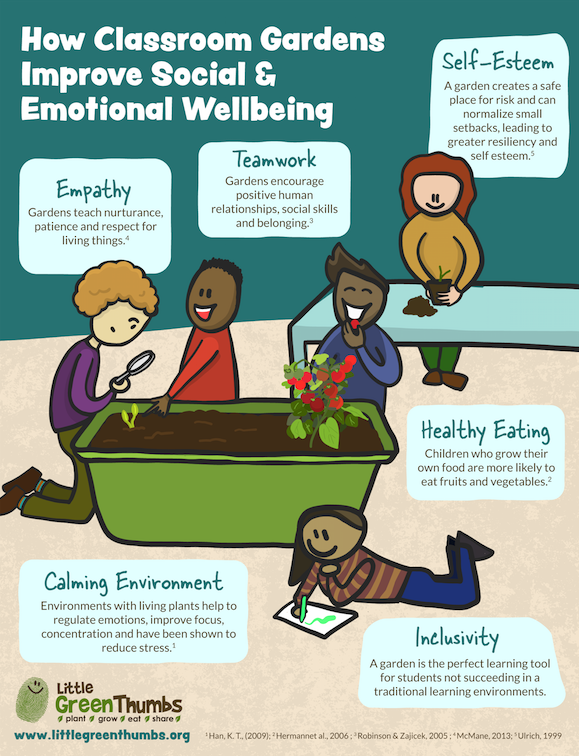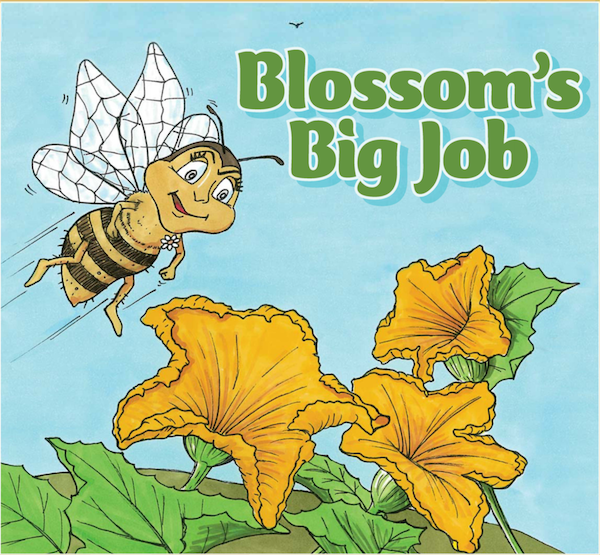Social & Emotional Well-being: Gardens can Help!
Grow Resilient Children with a Classroom Garden
Resilience (or resiliency) is our ability to adapt and bounce back when things don’t go as planned – an important for children (and adults). Resilience enables us to most easily recover from setbacks, reduces the effects of stress, and can also protect us from the development of some mental health difficulties.
How can gardens develop resilient children?
Gardening gives children a place to take risks
Giving children the responsibility to take care of plants may come with setbacks. When a child encounters a challenge, they learn coping skills and how to find solutions.
Handing over the management of the garden to students can reap benefits in terms of confidence, self-esteem and an enhanced perception of their abilities.
Imagine the emotions a child might encounter taking care of a plant for the first time, watching it grow, from seed to plant. That process can be a powerful tool in order to gain self-confidence.
Gardens enhance the learning environment
Research has shown us that plants in the environment can help children learn. Environments with living plants can improve concentration and focus, reduce stress (Han KT, 2009) and best of all create curiosity and excitement to fuel inquisitive minds!
Gardening as a class teaches teamwork, empathy, respect and positive human relationships. An environment where children feel valued, respected, and encouraged by their peers produces not only academic benefits but also mental, social and emotional well being as well!
Tips for growing student’s resiliency and emotional well-being:
If you are an existing Little Green Thumbs teacher, you can check out the corresponding page numbers below in your Little Green Thumbs teacher manual for more inspiration!
- Establish Garden rules and create a culture of respect and safety (Set-up & Safety, Pg.1)
- Assign children to garden teams so they can develop teamwork (Growing a Great Garden, pg.7)
- Use your classroom garden as a springboard for investigative, student centered inquiry (Teaching and Learning, pg. 2)
- Develop responsibility by allowing children to worm sit over the holidays (Vermicomposting, pg. 21)
- Connect to nature by encouraging garden observation (Growing a Great Garden, pg. 25)
- Celebrate cultural inclusivity and students’ heritages (Program Information, pg. 14)
- Encourage a growth mindset (Program Information, pg. 8)
Han, K.-T. (2009). Influence of Limitedly Visible Leafy Indoor Plants on the Psychology, Behavior, and Health of Students at a Junior High School in Taiwan. Environment and Behavior, 41(5), 658–692. https://doi.org/10.1177/0013916508314476


